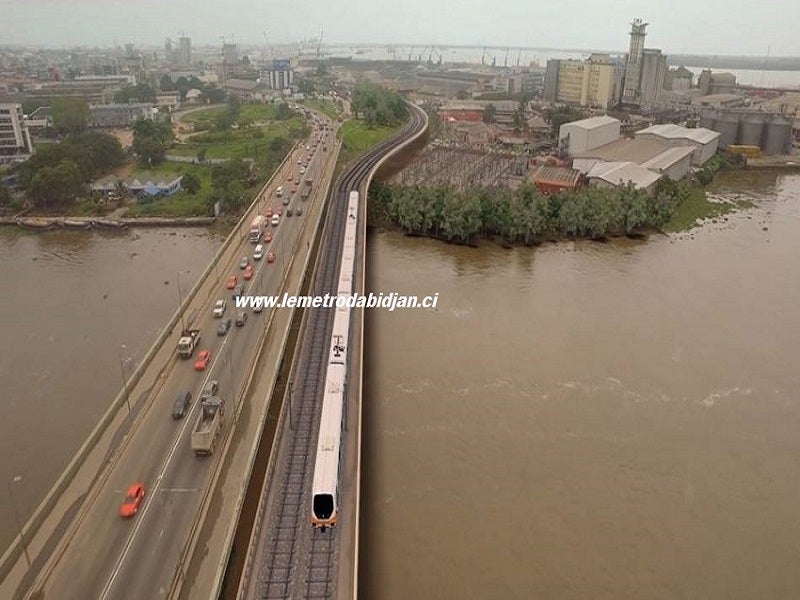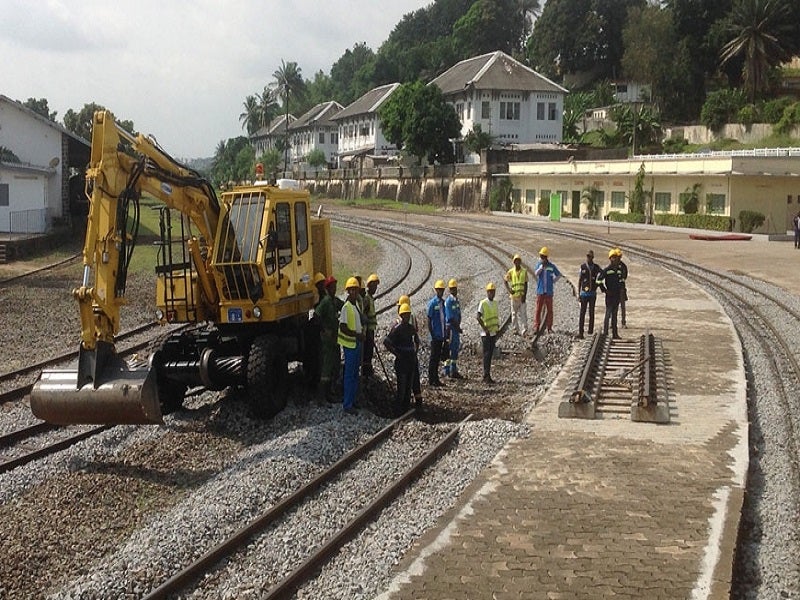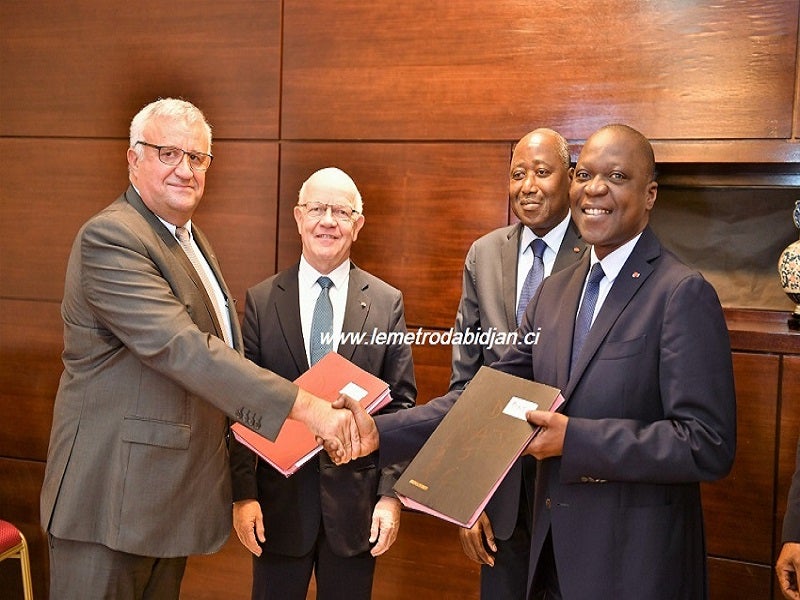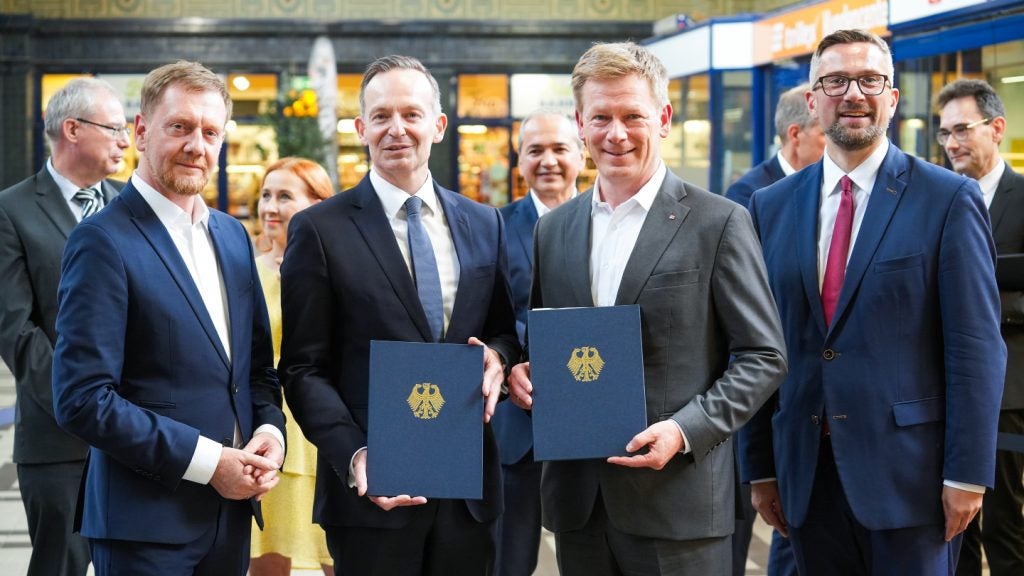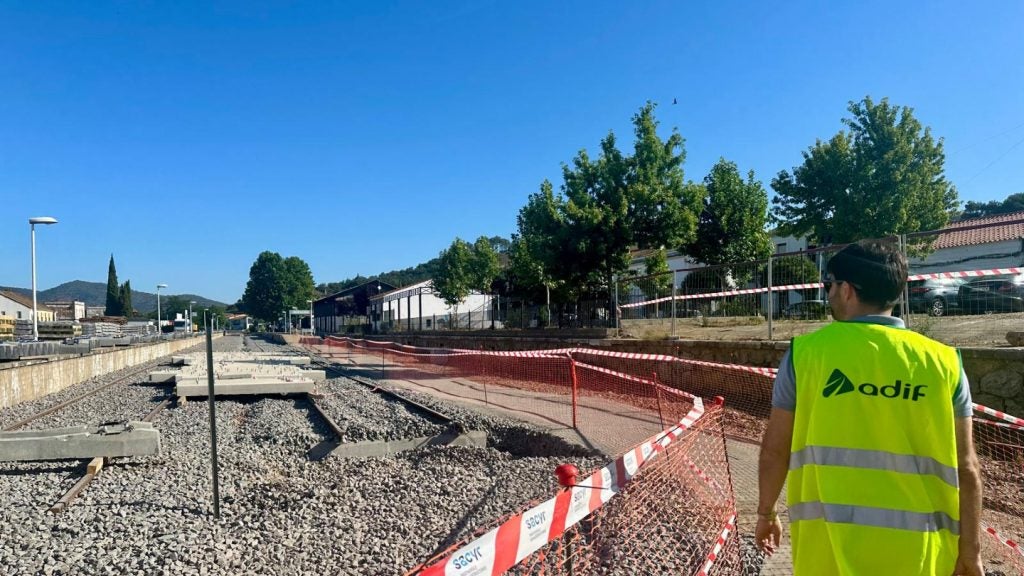Abidjan Metro, also known as Metro d’Abidjan, is a 37km-long elevated rapid transit network being developed by French companies in coordination with the Ivory Coast Government to address traffic congestion in the city of Abidjan.
The urban and suburban rail transport system will connect the Anyama and Port-Bouët suburbs of Abidjan.
Abidjan will become the third African city with high-capacity urban metro upon commissioning of the system. The Abidjan metro will be able to carry more than 500,000 passengers a day. The project is expected to generate 2,000 jobs.
Abidjan metro project development
Ivory Coast initially signed an agreement with a French-South Korean consortium for the construction of the Abidjan metro on a build, operate, and transfer basis. The consortium included Bouygues, Keolis, Hyundai Rotem, and Dongsan Engineering. The South Korean partners withdrew from the project in October 2017.
The government resumed the development of the metro in November 2017. In December 2019, a technical and financial offer submitted by Société des Transports Abidjanais sur Rail (STAR) consortium was approved by the government through a second addendum, clearing the way for construction works on line one of the metro project.
The consortium includes Alstom, Keolis, Colas Rail and Bouygues Travaux Publics. The construction of the metro is estimated to cost €1.36bn ($1.5bn). Expected to start by the end of 2020, the construction of line one is conditional on land availability and finalisation of the project financing.
Abidjan metro line and route details
The future Line 1 of the Abidjan metro network will be 37km-long and pass through 18 stations, linking seven municipalities in Abidjan district.
The overground metro will include the construction of 24 bridges, eight underpasses, a viaduct over the Ebrié lagoon and 34 footbridges for pedestrians. The train will pass through Abobo, Adjame, Plateau, Treichville, Marcory before reaching Port-Bouet.
The route will end with a connection between Port-Bouët and Félix-Houphouët-Boigny International Airport to the south of the city. The total duration of the journey from Anyama centre to Aerocity will be 50 minutes.
The metro line one will contain two 1,435m standard gauge railway tracks. It will include electric traction, 21 rail and road bridges, landscaping and architectural systems, and protection from noise pollution. A 22ha railway depot will also be built at the Sagbe triangle.
The line will share the rights-of-way currently used by the Abidjan-Ouagadougou railway line for approximately 32.5km.
A new rail bridge will be constructed in parallel to the Felix Houphouet-Boigny (FHB) bridge, between the municipalities of Plateau and Treichville.
The transit system will be connected to road and public transport networks such as SOTRA, STL and Citrans Aqualines.
Rolling stock of Abidjan metro
Alstom will provide 20 trainsets of Metropolis trains comprising five cars each for the line. The trains will feature advanced communication-based train control (CBTC) system that will improve the train regularity and safety.
The Metropolis trains can operate in both driver and driverless modes. The design supports customisation and provides improved passenger experience. The lightweight trains with improved power conversion efficiency will feature full electrical braking systems and LED lighting, consuming less energy. Predictive maintenance helps reduce costs related to maintenance and improve the availability of the trains.
The gangways and wide doors will facilitate optimal circulation between the rows of seats, while large windows and glass doors provide outside view. The train will also include spaces to enable easier movement of passengers with reduced mobility.
Passenger-friendly modern technologies include dynamic route maps, video surveillance, lighting solutions, on-board Wi-Fi, video displays, USB ports, and real-time passenger information.
The designed speed of Metropolis is 90km/h, while its operational speed will be 80km/h.
Project financing and benefits
France agreed to provide full funding to the metro project through concessional loans. The construction of the Abidjan metro line 1 will be 100% funded via the French Development Agency and the French Treasury.
The financing needs to be finalised with the French authorities.
The project will resolve traffic congestion on trade routes during peak hours. It will also serve as an economical mode of transportation for the people residing in and around the capital.
Key players involved in the project
Bouygues Travaux Publics, a subsidiary of Bouygues Construction, is the head of the consortium and is responsible for the coordination and civil engineering.
Colas Rail will handle the electrification of the metro line and is also responsible for the track and ticketing, audio and video systems.
In addition to the Metropolis trainsets, Alstom will provide depot equipment, system integration, telecommunications and signalling.
Line one will be maintained and operated by Keolis. The Ivorian Society for the Construction of the Abidjan Metro (SICMA) is carrying out the network diversion works in preparation for the construction of the metro project.

